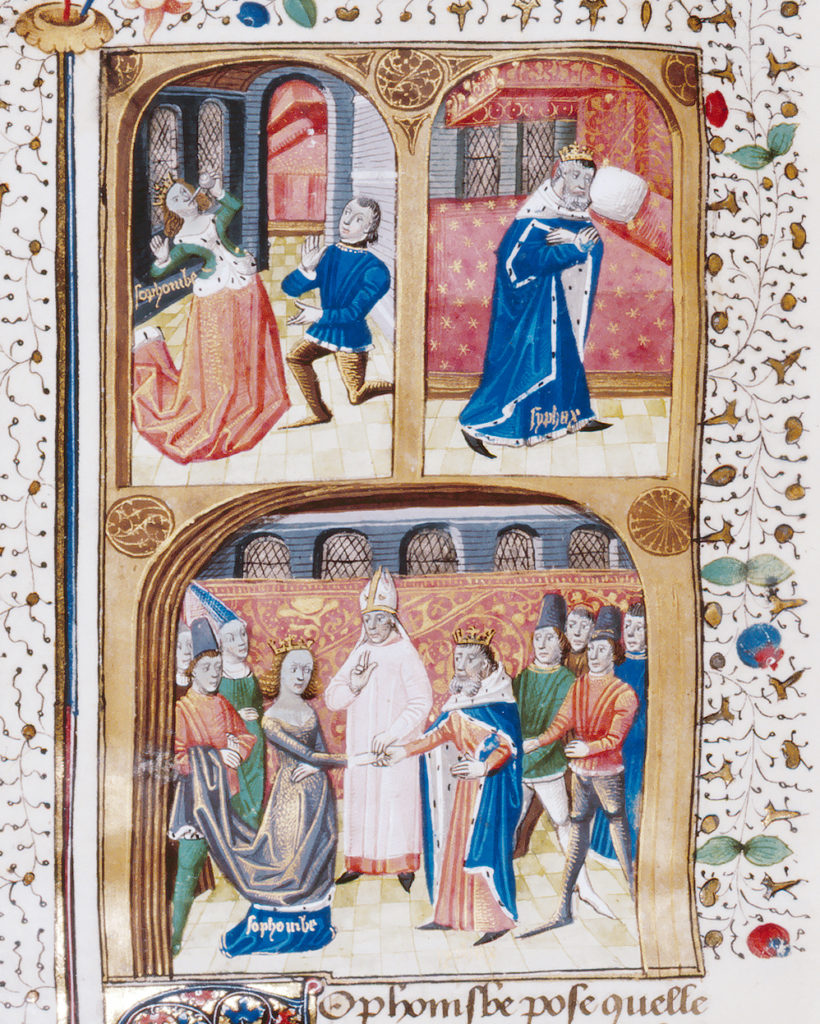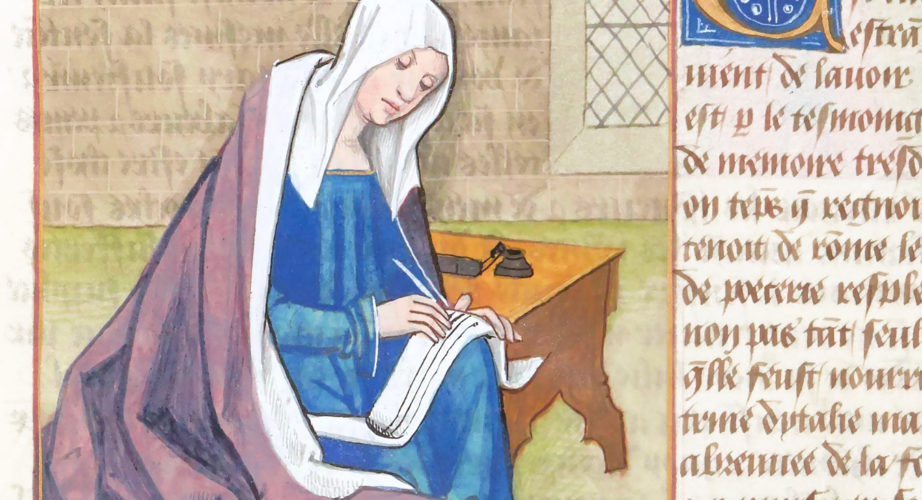Sophonisba

Another Wednesday, another story! This week we are asking you a difficult question: what would you be willing to do in order to maintain your freedom?
In his De Mulieribus Claris, Boccaccio often praises the deeds of intrepid women. Sophonisba, a Carthaginian noblewoman, constitutes a great example: she decided to give up her life rather than succumb to her enemies. The story takes place in 203 BC Numidia, at the time of the Battle of the Great Plains, when the Roman Scipio Africanus and the leader of the eastern Numidians, Massinissa, fought against a combined army of Carthaginian and western Numidians.
What does this have to do with Sophonisba? Given in marriage to Syphax, the leader of the western Numidians, the woman cunningly used all that was in her power to convince her husband to side with the Carthaginians during the Second Punic War. After betraying his former Roman allies, Syphax and his army were defeated and the king ended up captured and deprived of its lands. Sophonisba’s efforts were therefore unsuccessful and the young woman fell in Masinissa’s hands. Enchanted by her beauty, the commander could not help but falling in love with her and decided to marry her. But this marriage did not last long: Scipio, fearing Sophonisba would turn his ally against Rome as she did with Syphax before, insisted on her surrender so that she could be taken captive to Rome.
Conscious of his wife’s relentless spirit, Masinissa sent her a servant with the bad news and a cup of poison as the only alternative, leaving the ultimate decision in her hands. With great composure and no hesitation, Sophonisba accepted the “wedding gift”; as she did so, however, she bitterly claimed that she would have preferred to die without ever taking a husband - therefore reproaching Masinissa for his cowardice.
“Sophonisba”, illumination from the manuscript “Des cleres et nobles femmes”, ms. Spencer Collection 033, f. 40v, 1450 circa, The New York Public Library.
Historically and mythologically speaking, being in a powerful position (and perhaps also a…
The time has finally come for the very first Women’s Wednesday of 2021!…
Welcome back to another Women’s Wednesday! Our weekly Mulier Clara, much like Sappho…


